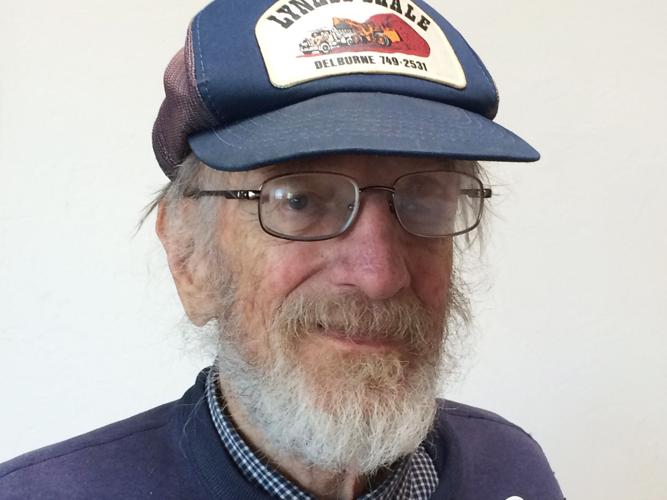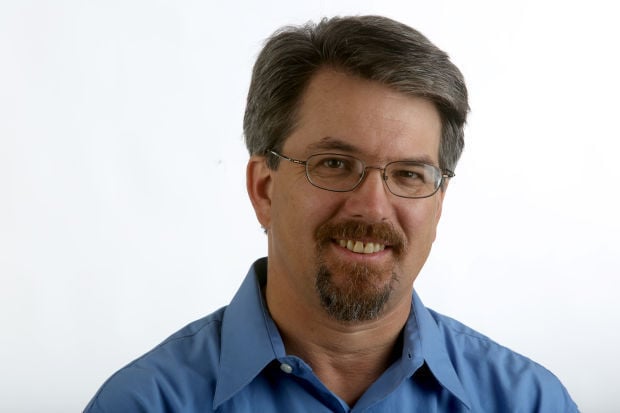So many Americans are afraid these days and desperate for a protector.
The Republican presidential debate Tuesday night was like a terrifying fever dream. Ben Carson said “our very existence” depends on winning “the war we’re fighting now against radical Islamic jihadists.”
Introducing Donald Trump in Mesa Thursday, retired Air Force Lt. Col. Wendy Rogers said, “We need a wartime president again.” Then, on national TV Friday, Trump accepted compliments from Russian President Vladimir Putin and shrugged off the fact mentioned by his interviewer that Putin’s government kills journalists and political opponents.
“At least he’s a leader, unlike what we have in this country,” Trump said.
“At least he’s a leader” — those are words to remember, the words of a true totalitarian. A Trumptalitarian, as I like to call him and his supporters.
Last week I visited with a Tucsonan who once escaped such a leader and has been thinking a lot about fear and safety. Franklin Sax is 81 and lives on Tucson’s east side. You may know his name from the letters to the editor he’s written to the Star over the years, or his activism against the proposed Snyder Road bridge over Sabino Creek. I know him from occasional email exchanges we’ve had, most recently about refugees and fear.
What I didn’t know until recently is that Sax was born a citizen of Germany in 1934. The next year, 1935, he lost his German citizenship under Adolf Hitler’s Nuremberg Laws, which stripped Jews of their citizenship.
By late 1938, Sax’s family was looking for a way out of Germany, but the United States wasn’t welcoming, either. Jews were present here but considered an out-group, not very American — similar, in some ways, to how many Americans view Muslims these days.
Here’s how the United States Holocaust Museum describes our treatment of Jewish refugees around the time Sax’s family was looking to escape, when World War II was about to break out:
About 85,000 Jewish refugees (out of 120,000 Jewish emigrants) reached the United States between March 1938 and September 1939, but this level of immigration was far below the number seeking refuge. In late 1938, 125,000 applicants lined up outside US consulates hoping to obtain 27,000 visas under the existing immigration quota. By June 1939, the number of applicants had increased to over 300,000. Most visa applicants were unsuccessful.
That would have been the case with Sax’s family as well, he told me, except for a stroke of luck. Before Kristallnacht on Nov. 9-10 1938 — when anti-Semitic mobs attacked Jews and their property across Germany — his family had made arrangements to travel to the United States. But then they couldn’t get visas.
A saleswoman for the Hamburg-America passenger line — Sax remembers her name, Fraulein Loeffel — turned out to be their savior, for self-interested reasons.
“She would not have gotten her commission if we didn’t sail,” he said. “She said the American embassy in Berlin is not issuing any visas. You have to go to Stuttgart and see Herr Auf Wiedersehen.”
In other words, a certain American consular officer in Stuttgart was issuing visas in exchange for bribes. That saved Sax’s life and the lives of his family. While most of the relatives on his father’s side were killed, Sax and his family arrived in New York and moved to St. Louis, where other relatives had already arrived.
Now, 77 years later, Sax has lived a full, rich American life — four years in the Army, four kids, a career in business and engineering. But he still has fears. One of the main ones is people backing up. Yes, people putting their cars in reverse and backing up.
When he was five years old and living in St. Louis, a coal-truck driver backed up over a young boy who was a close friend of Sax, killing him. For years, he’s encouraged people to minimize their use of reverse. That’s what he considers a real threat.
He’s worried, though, as I am, about the drift of the country’s political debate toward “warmongering” and “fearmongering.” When one of the moderators of the Dec. 15 debate, conservative radio host Hugh Hewitt, asked whether Carson would be “OK with the deaths of thousands of innocent children and civilians” as a result of his proposed U.S. attacks on ISIS overseas, the crowd booed.
Concerning yourself with the survival of foreigners is not OK in much of the Republican Party or vast swaths of America today. It’s grounds for derision because it suggests that we in the United States are not the real victims or the truly threatened.
This sort of rhetoric has been especially sharp in Arizona. Two sheriffs — Maricopa County’s Joe Arpaio and his protegé, Pinal County’s Paul Babeu — have called on citizens to arm themselves to fight against possible terrorist attacks. Gov. Doug Ducey has asked that refugee resettlement in Arizona be halted and that some DPS officers be stationed on the border instead of the highways.
Sax wishes, and I wish, we would keep our heads and put the risks in perspective. I find that walking out my front door, breathing consciously and taking in the normality helps. No matter what Carson says, ISIS is not an existential threat to the United States of America.
“We eat ourselves into morbid obesity,” Sax said. However, “No matter how slight the actual risk is, we fear what we can’t control.”
“There are so many things the American public gets all worked up about,” he said, “when if, for God’s sake, they would just not back up.”





